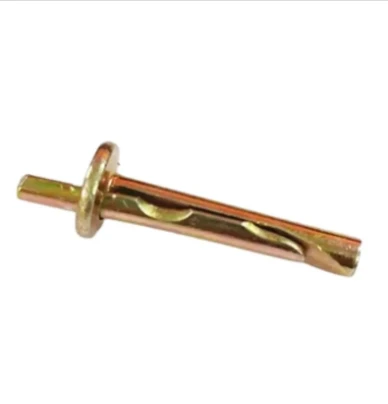Dec . 11, 2024 08:34 Back to list
Exploring the Benefits of Aluminum Screws for Various Applications in Construction and Engineering
The Versatility and Benefits of Aluminum Screws
Aluminum screws are increasingly becoming a popular choice in various industries due to their unique properties and advantages. With an array of features that make them suitable for a multitude of applications, aluminum screws are transforming the way we approach fastening solutions.
One of the most prominent advantages of aluminum screws is their lightweight nature. Aluminum is substantially lighter than steel, which makes aluminum screws ideal for applications where weight reduction is critical. This characteristic is particularly important in industries such as aerospace and automotive, where every ounce matters. By opting for aluminum screws, engineers can create more efficient designs without compromising the integrity or durability of the assemblies.
Corrosion resistance is another significant benefit of aluminum screws. Aluminum naturally forms a protective oxide layer that prevents corrosion, making it suitable for use in environments exposed to moisture, chemicals, or saline conditions. This characteristic is invaluable in marine applications, where metal components are regularly subjected to wet conditions. Choosing aluminum screws can prolong the lifespan of devices and structures, ultimately leading to reduced maintenance costs and increased reliability.
The excellent thermal and electrical conductivity of aluminum is another reason for its increasing use in screws. In certain applications, the ability to conduct heat or electricity efficiently is essential. For example, aluminum screws are often used in electrical enclosures and heat sinks to ensure optimal performance. They help dissipate heat effectively, which is critical for maintaining the functionality and longevity of electronic components.
aluminum screws

In the realm of aesthetics, aluminum screws offer a sleek and modern appearance. They can be anodized in various colors, allowing for customization that can enhance the visual appeal of a product. This feature is particularly valued in consumer electronics and decorative items where appearance plays a significant role in consumer choice. The ability to match the screw’s color to the overall design of a product adds an element of sophistication that might not be achievable with traditional steel screws.
Aluminum screws are also known for their excellent machinability, which allows for precision manufacturing. They can be easily machined and shaped to meet specific requirements, ensuring that manufacturers can produce screws that are tailored to their needs. The inherent properties of aluminum also minimize the risk of galling (the adhesive wear between parts), which can be a problem in other materials, particularly when threads are involved.
Despite these advantages, it is essential to acknowledge the limitations of aluminum screws. They may not be suitable for applications requiring high tensile strength or load-bearing capabilities, as aluminum, while strong for its weight, generally does not match the strength of steel. Therefore, it is crucial for engineers and designers to assess the requirements of their specific applications before opting for aluminum screws over traditional materials.
In conclusion, aluminum screws offer a blend of lightweight, corrosion-resistant, and aesthetically pleasing properties that make them an excellent choice for a diverse range of applications. Their wide acceptance in industries such as aerospace, automotive, and electronics is a testament to their versatility and effectiveness. As technology continues to advance, the demand for innovative fastening solutions like aluminum screws is likely to grow, further solidifying their position in the market. Manufacturers looking for reliable, efficient, and attractive fastening options should consider aluminum screws as a viable alternative to traditional materials. By understanding the unique properties and benefits of aluminum screws, companies can make informed decisions that enhance their product designs and overall performance.
-
The Ubiquitous Reach of DIN934 in Application Realms
NewsMay.16,2025
-
Exploring Different Bolt Types
NewsMay.16,2025
-
Cracking the Code of Sleeve Anchor Mastery
NewsMay.16,2025
-
Clamp Design Principles,Types and Innovations
NewsMay.16,2025
-
Artistry Inspired by the Humble Anchor Bolt
NewsMay.16,2025
-
A Deep Dive into Screw Types
NewsMay.16,2025


